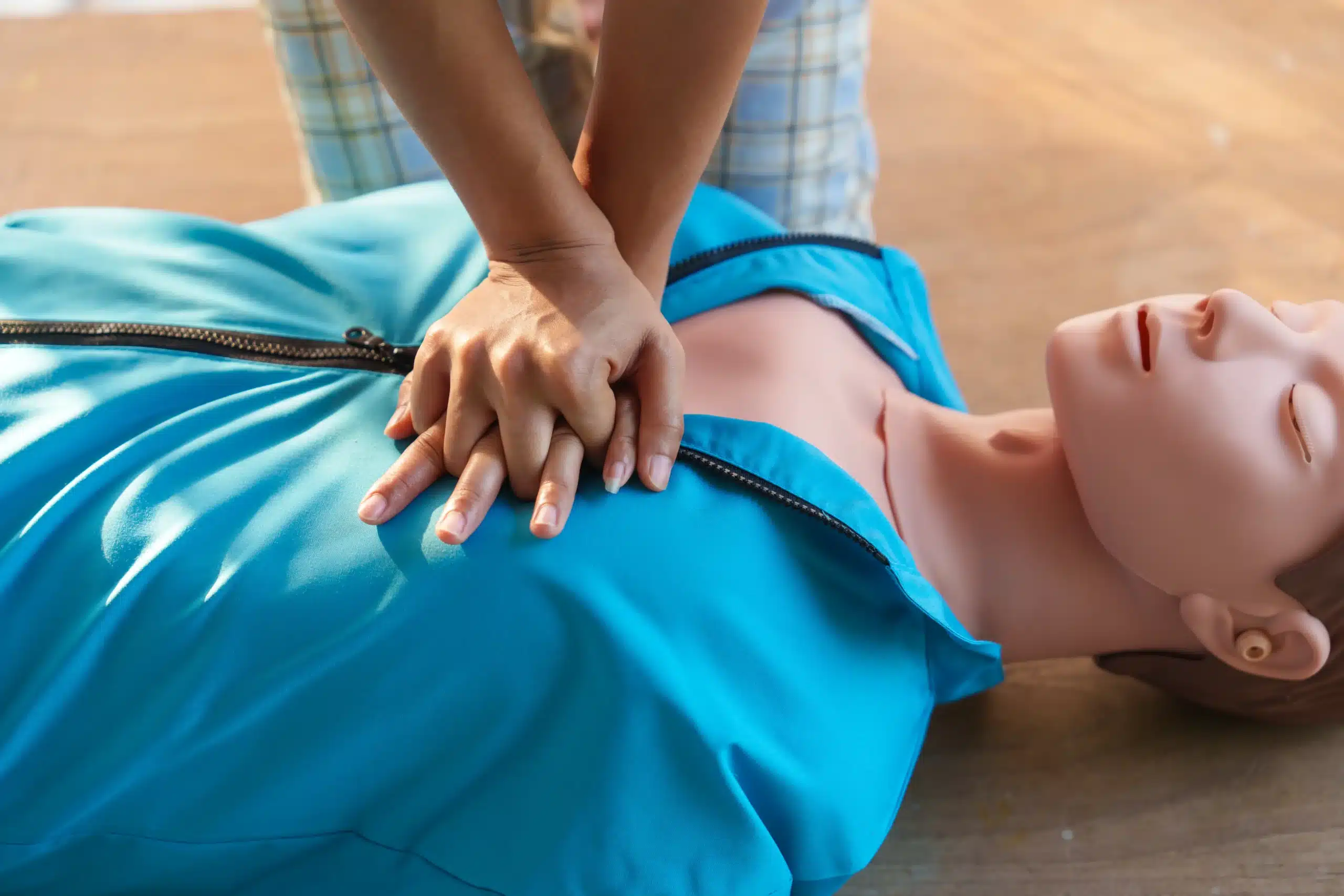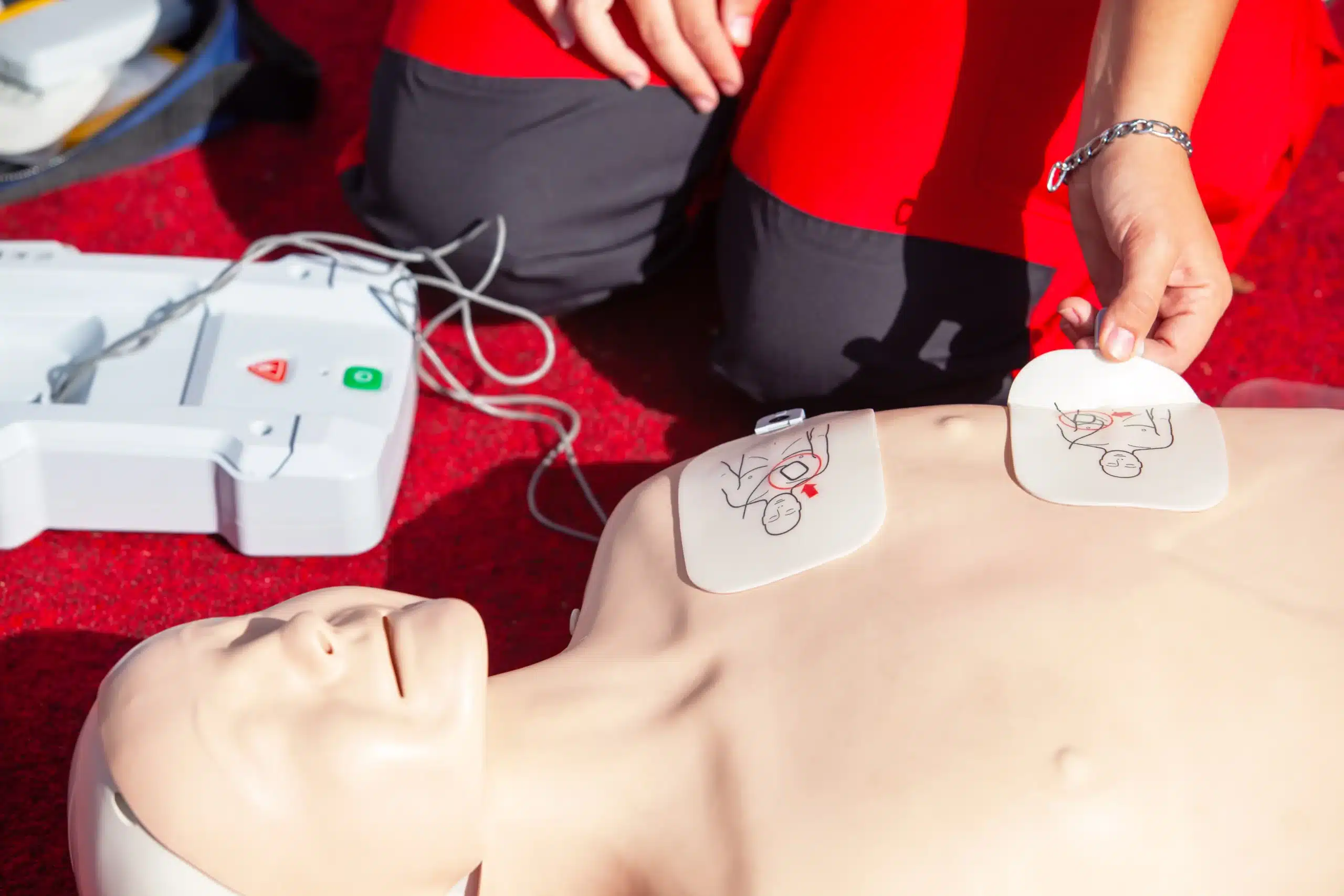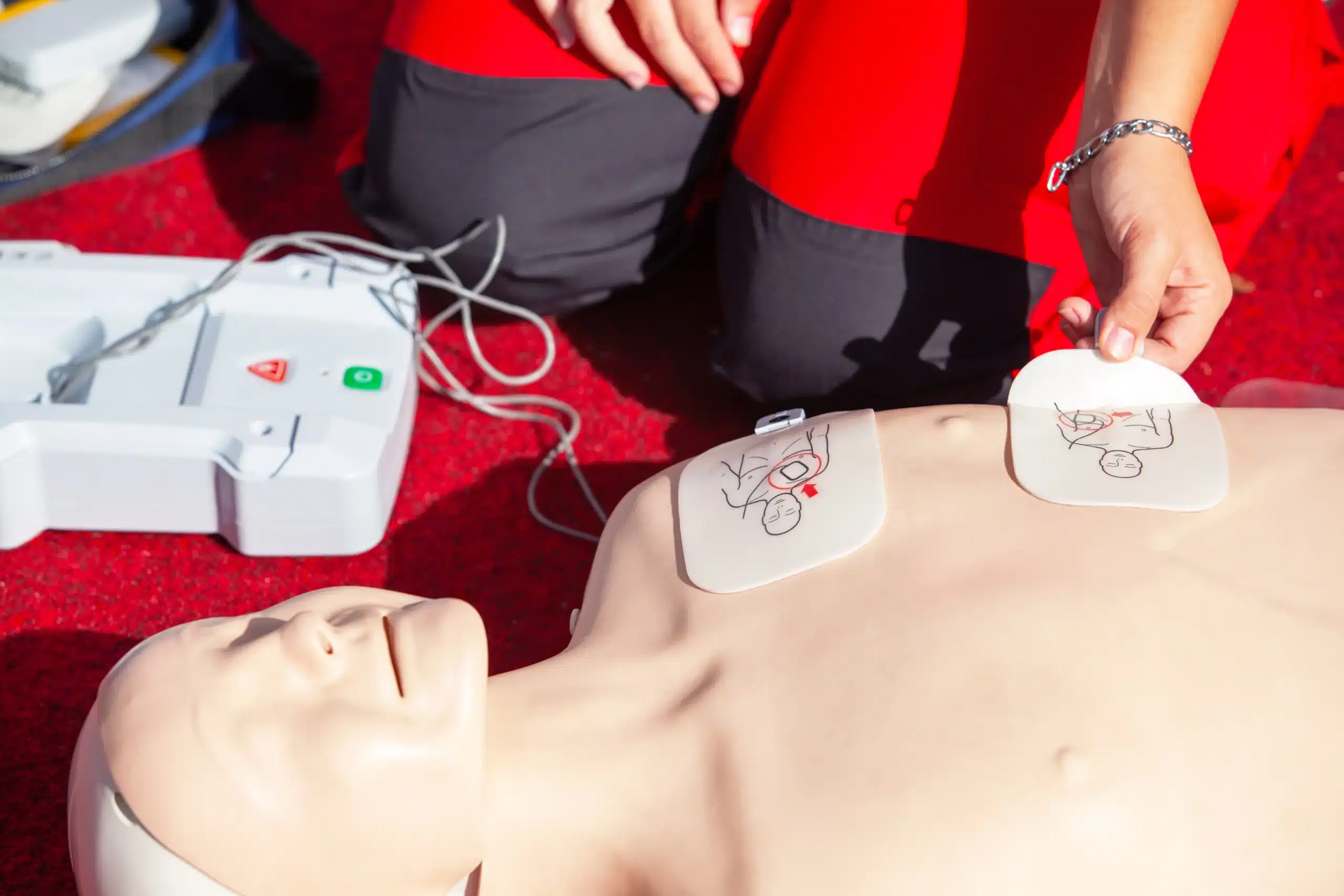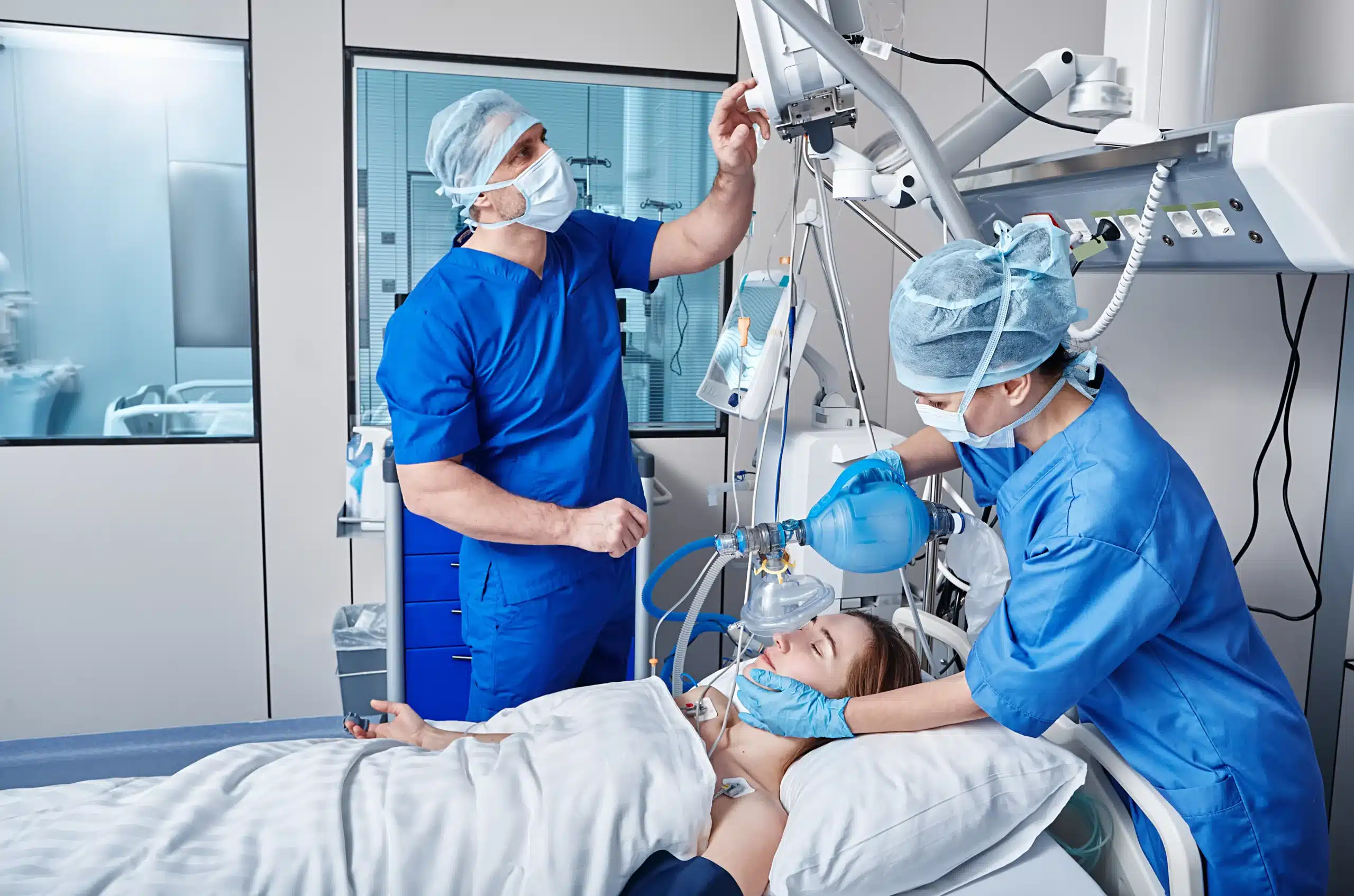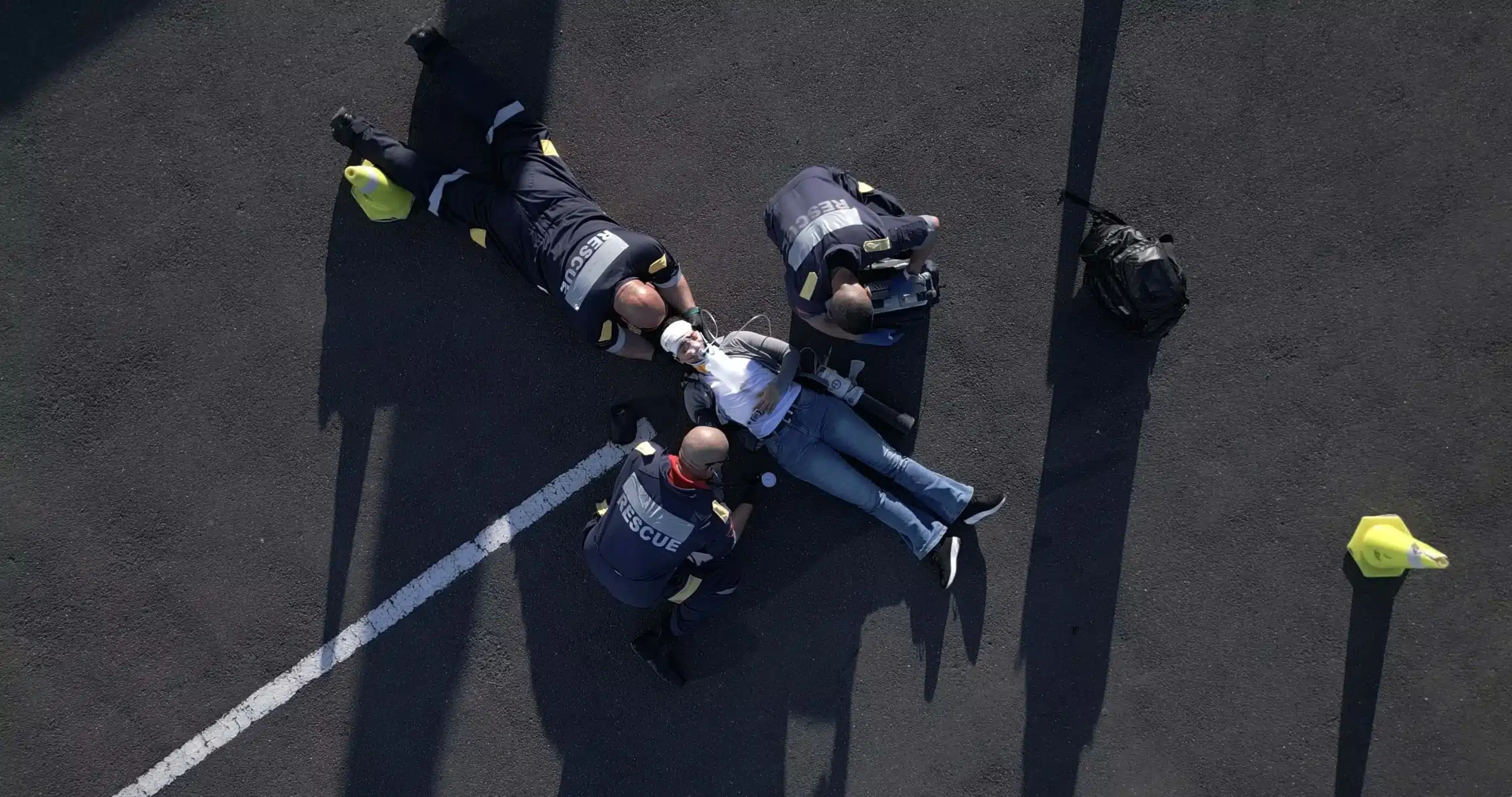As a healthcare professional, you know that seconds can matter in an emergency, especially when a child’s life is on the line. Pediatric Advanced Life Support (PALS) certification equips you with the skills and knowledge to respond swiftly and effectively in those critical moments. This guide is your comprehensive resource for understanding PALS certification in Hayward. We’ll cover everything from the core skills taught in PALS training to finding the right course for your needs. Whether you’re a seasoned healthcare provider or just starting your career, understanding the importance of pediatric advanced life support in Hayward is crucial for providing the best possible care to young patients.
Key Takeaways
- PALS is essential for pediatric care: This specialized training goes beyond basic life support, giving healthcare providers the skills to confidently manage pediatric emergencies and improve patient outcomes.
- Find the right PALS course: Choose between in-person and blended learning formats from an AHA-certified provider like San Leandro CPR Classes. Consider factors such as cost, schedule, and location.
- Stay up-to-date with PALS: Renew your certification every two years and stay informed about the latest guidelines to maintain your skills and provide the best possible care.
What is Pediatric Advanced Life Support (PALS)?
What is PALS and Why is it Important?
Pediatric Advanced Life Support (PALS) is a specialized course designed to equip healthcare providers with the knowledge and skills to effectively manage life-threatening emergencies in infants and children. It goes beyond basic life support (BLS) and focuses on a systematic approach to pediatric assessment, treatment, and resuscitation. PALS emphasizes critical thinking, problem-solving, and teamwork—all vital for navigating the complexities of pediatric emergencies. The goal is to improve the quality of care provided to seriously ill or injured children, ultimately increasing their chances of survival and positive outcomes. For healthcare professionals entrusted with the care of young patients, PALS is essential. Learn more about our PALS certification.
Who Needs PALS Certification?
PALS certification is crucial for any healthcare professional who may be involved in managing pediatric emergencies. This includes individuals who direct resuscitation efforts, as well as those who participate as part of a response team. Physicians, nurses, paramedics, respiratory therapists, and other healthcare providers working in emergency departments, intensive care units, and other critical care settings will all find PALS invaluable. If your role involves the potential for responding to pediatric respiratory or cardiovascular emergencies, PALS certification should be a top priority. Check with your employer to see if PALS certification is a requirement for your position. We offer group discounts for PALS certification.
What Skills Will You Learn in PALS Training?
PALS training provides a comprehensive curriculum covering a wide range of essential skills. You’ll learn systematic pediatric assessment techniques to quickly and accurately evaluate a child’s condition during an emergency. The course covers both basic and advanced life support techniques tailored specifically to pediatric patients, including airway management, ventilation, and circulatory support. PALS training also delves into pediatric pharmacology, giving you the knowledge to administer medications appropriately in emergency situations. Beyond technical skills, PALS emphasizes effective communication and teamwork within the healthcare team, ensuring coordinated and efficient responses during critical events. Ultimately, PALS equips you with the skills to confidently manage a variety of pediatric emergencies, from shock and respiratory distress to cardiac events and post-resuscitation care. Contact us to learn more about our PALS courses. We also offer the RQI program for expedited certification.
Best PALS Certification Providers in Hayward
Finding the right PALS certification course can feel overwhelming, so I’ve compiled a list of reputable providers in and around Hayward. Whether you prefer in-person learning or the flexibility of online modules, there’s an option for you.
San Leandro CPR Classes
San Leandro CPR Classes offers AHA-certified PALS training, along with ACLS, BLS, and CPR/First Aid certification. They emphasize small class sizes for more personalized instruction and convenient daily classes. For larger groups or workplace training, they can also conduct on-site training. Be sure to check their website for their low price guarantee.
Emergency & Health Training Center
Located in Hayward, the Emergency & Health Training Center offers the American Heart Association (AHA) PALS blended learning course. This blended learning format combines online modules with a streamlined in-person skills session. This allows you to learn the material at your own pace before demonstrating your skills in a practical setting.
Safety Training Seminars
Safety Training Seminars provides a range of AHA-certified courses, including PALS, in nearby San Leandro. Upon completion, you’ll receive the official American Heart Association certification card, valid for two years, ensuring your certification meets widely accepted standards.
American Red Cross
The American Red Cross also offers Pediatric Advanced Life Support (PALS) certification. While not affiliated with the AHA, the Red Cross provides a comprehensive program. Explore their curriculum to see if their approach is a good fit for you.
Online Certification Options
Choosing between online and in-person PALS training depends on your learning style and schedule. Both options can lead to the same American Heart Association certification. Online courses offer maximum flexibility, while in-person classes provide immediate feedback and real-time practice. If online learning appeals to you, check out our guide to online PALS classes in Hayward for more information.
PALS Course Formats and Requirements
In-Person vs. Blended Learning
The American Heart Association (AHA) offers two main formats for PALS certification: in-person and blended learning. Traditionally, PALS training has been delivered in a classroom setting with an instructor. This in-person format allows for direct interaction with the instructor and hands-on practice. However, blended learning, known as HeartCode PALS, has become increasingly popular. This format combines online coursework with a shorter, in-person skills session. The online portion allows you to learn the material at your own pace, while the skills session focuses on practicing and demonstrating the techniques you’ve learned. This blended learning option offers more flexibility for those with busy schedules. You can find more information about PALS courses in Hayward.
Course Lengths for Initial and Renewal Certifications
The length of your PALS course will depend on whether you’re pursuing initial certification or recertification. Initial PALS certification typically requires around 12 hours of training. This includes both the online coursework and the in-person skills session if you choose the blended learning format. Renewal courses, on the other hand, are generally shorter, taking approximately eight hours. Learn more about PALS course options and choose the best fit for your needs.
Prerequisites and Eligibility
Before you can enroll in a PALS course, you’ll need to meet a few prerequisites. The most important requirement is proficiency in pediatric basic life support (BLS) skills. Make sure you have a current BLS certification before signing up for PALS training.
Costs and Discounts
The cost of PALS certification varies depending on the format and provider you choose. For the blended learning option, the online portion (HeartCode PALS) typically costs $168. The in-person skills session, which includes your certification, costs $150. Group discounts are often available, so if you’re training with colleagues or friends, be sure to inquire about potential savings. For example, San Leandro CPR Classes offers a 25% discount on the in-person skills session for groups of two to five people. Check their website for the latest information on pricing and discounts for group CPR classes. For the best rates in the area, see their low price guarantee. Have questions? Contact San Leandro CPR Classes for more information.
Benefits of PALS Certification
Earning your PALS certification is a significant achievement, demonstrating your commitment to providing high-quality care and opening doors to career advancement. Let’s explore some key benefits:
Improve Your Emergency Response Skills
PALS certification equips healthcare providers with the skills to confidently manage pediatric emergencies. You’ll learn how to quickly assess a child’s condition, recognize life-threatening issues like shock or respiratory distress, and provide effective treatment. This training builds upon foundational Basic Life Support (BLS) skills, focusing on the specific needs of young patients. The American Red Cross offers more information on PALS certification.
Advance Your Healthcare Career
A PALS certification is a valuable asset for healthcare professionals. It’s often a required qualification for jobs in fields like pediatrics, emergency medicine, and critical care. For example, the Emergency & Health Training Center highlights the importance of PALS certification for various healthcare roles. Whether you’re a doctor, nurse, paramedic, or other healthcare provider, PALS certification can enhance your resume and create new career opportunities.
Improve Patient Outcomes
PALS training emphasizes a systematic approach to pediatric emergencies. By learning to address issues specific to infants and children, you’ll be better prepared to deliver timely and appropriate interventions. SimX discusses how PALS training focuses on the unique needs of pediatric patients. This targeted approach can significantly improve patient outcomes and increase the chances of survival and recovery.
Meet Healthcare Standards
PALS certification is widely recognized as a standard requirement for healthcare providers involved in pediatric emergency care. Maintaining this certification demonstrates your commitment to meeting professional healthcare standards and ensures you have the most up-to-date knowledge and skills. Hayward CPR Classes offers a helpful guide on BLS, ACLS, and PALS training. Your PALS certification will be valid for two years, after which you’ll need to recertify to stay current with the latest guidelines.
Get and Keep Your PALS Certification
Getting your PALS certification is a rewarding step in your healthcare career. This section covers everything you need to know to find the right course, succeed in your training, and maintain your certification.
Choosing a PALS Provider
Finding the right PALS provider is crucial for a positive learning experience. Look for an American Heart Association (AHA)-accredited provider like San Leandro CPR Classes, which offers various AHA-certified courses including PALS, BLS, and ACLS. Serving Hayward, Union City, and San Leandro, they offer daily classes and on-site training for groups. Consider factors like instructor experience, comprehensive course content, and flexible scheduling options such as blended learning. Convenient location and competitive pricing are also important.
Tips for PALS Certification Success
Preparing for your PALS course can significantly impact your success. Review the PALS Provider Manual beforehand and familiarize yourself with the algorithms and protocols. Actively participate in class discussions and simulations, and don’t hesitate to ask your instructor questions. Hands-on practice is essential, so take advantage of every opportunity to practice your skills. Studying with a group can also be beneficial, allowing you to share knowledge and support each other.
Renewing Your Certification & Continuing Education
Your PALS certification is typically valid for two years. To maintain your credentials, complete a PALS renewal course before your certification expires. Many providers offer renewal courses that cover updates to the PALS guidelines and refresh your skills. Staying current with the latest guidelines ensures you’re providing the highest quality of care. Consider the RQI program for a streamlined recertification process.
Stay Up-to-Date with PALS Guidelines
Pediatric Advanced Life Support guidelines are regularly updated to reflect the latest research and best practices. Staying informed about these updates is essential for providing effective care. Subscribe to newsletters, follow relevant organizations on social media, and attend continuing education courses to stay current. This ongoing learning will help you maintain your skills and ensure you’re prepared for any pediatric emergency. Check out resources like the Hayward Emergency & Health Training Center, which offers various CPR, ACLS, and PALS certification courses. For any questions, contact San Leandro CPR Classes directly—they are happy to help.
Related Articles
- Pediatric Advanced Life Support (PALS) in Union City – San Leandro CPR Classes
- PALS Heartcode in Union City: The Complete Guide – San Leandro CPR Classes
- PALS HeartCode Hayward: Your Certification Guide – San Leandro CPR Classes
- Online PALS Classes in Hayward: Your Guide – San Leandro CPR Classes
- AHA PALS Classes in San Leandro, CA – San Leandro CPR Classes
Frequently Asked Questions
What is the difference between PALS and BLS? BLS, or Basic Life Support, teaches fundamental life-saving skills applicable to anyone, while PALS builds upon those skills with advanced techniques specifically for infants and children. PALS addresses the unique physiological differences and challenges in treating younger patients in critical situations.
How long does a PALS certification last, and how do I renew it? PALS certification is valid for two years. To renew, you’ll need to complete a PALS recertification course before your current certification expires. This refresher course covers any updates to the guidelines and reinforces essential skills. The RQI program offers a flexible and convenient way to recertify.
What if I don’t work in a hospital setting? Do I still need PALS? While PALS is often associated with hospital settings, it’s valuable for any healthcare professional who might encounter pediatric emergencies. This could include professionals in outpatient clinics, school nurses, paramedics, and other community-based healthcare roles. Check with your employer to see if PALS certification is recommended or required for your position.
Are online PALS courses as effective as in-person classes? Both online and in-person PALS courses can prepare you to manage pediatric emergencies effectively. Online courses offer flexibility, while in-person classes provide immediate feedback and hands-on practice. Both formats typically culminate in an in-person skills assessment to ensure competency. Choose the format that best suits your learning style and schedule.
How can I find a reputable PALS provider in my area? Look for providers accredited by the American Heart Association (AHA), like San Leandro CPR Classes. Check online reviews, compare course offerings, and consider factors like instructor experience, class size, and location. Don’t hesitate to contact providers directly to discuss your needs and ask questions.
